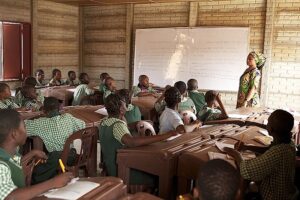
Stakeholders in Nigeria’s education sector are sounding the alarm over the deteriorating quality of education, despite its crucial role in national development. The 2024 National Accountability Summit, organized by the Paradigm Leadership Support Initiative (PLSI), highlighted several challenges undermining educational standards.
Some of the key challenges identified include poorly trained teachers, outdated curricula, and the absence of modern teaching tools and resources. Specifically, stakeholders noted that access to education remains a major challenge, particularly for girls and vulnerable groups in marginalized and rural communities, who face obstacles such as societal norms, early marriages, cultural barriers, and security challenges.
The summit also revealed that the government’s low budgetary allocation to education, which falls far short of UNESCO’s recommended 15-20% of national budgets, has resulted in chronic underfunding. This has led to decaying infrastructure, shortages of educational materials, and insufficient investment in teacher training and recruitment.
To address these challenges, experts recommend improving teacher training, ensuring the curriculum is relevant to current realities, and providing high-quality infrastructure. Additionally, intensified community advocacy and public education are necessary to challenge harmful social norms that prevent girls and vulnerable groups from accessing education. The government must also adopt policies targeting socio-cultural barriers to promote inclusivity.
Effective monitoring mechanisms are essential to ensure allocated funds are spent judiciously to improve educational outcomes. Moreover, addressing the “japa syndrome” – the trend of skilled professionals emigrating for better opportunities abroad – requires creating an environment where health workers can thrive and remain motivated to serve locally.
The experts emphasized that quality education is essential for national development, generating all levels of manpower and driving progress. Therefore, urgent attention is required to address the falling education quality in Nigeria. By prioritizing education, addressing these challenges, and implementing recommended reforms, Nigeria can unlock its full potential and drive national development.
The education sector requires comprehensive reforms, including improving teacher training, ensuring relevant curriculum, providing quality infrastructure, intensifying community advocacy and public education, adopting policies targeting socio-cultural barriers, and implementing effective monitoring mechanisms. By doing so, Nigeria can revitalize its education system and secure a brighter future for its citizens.

